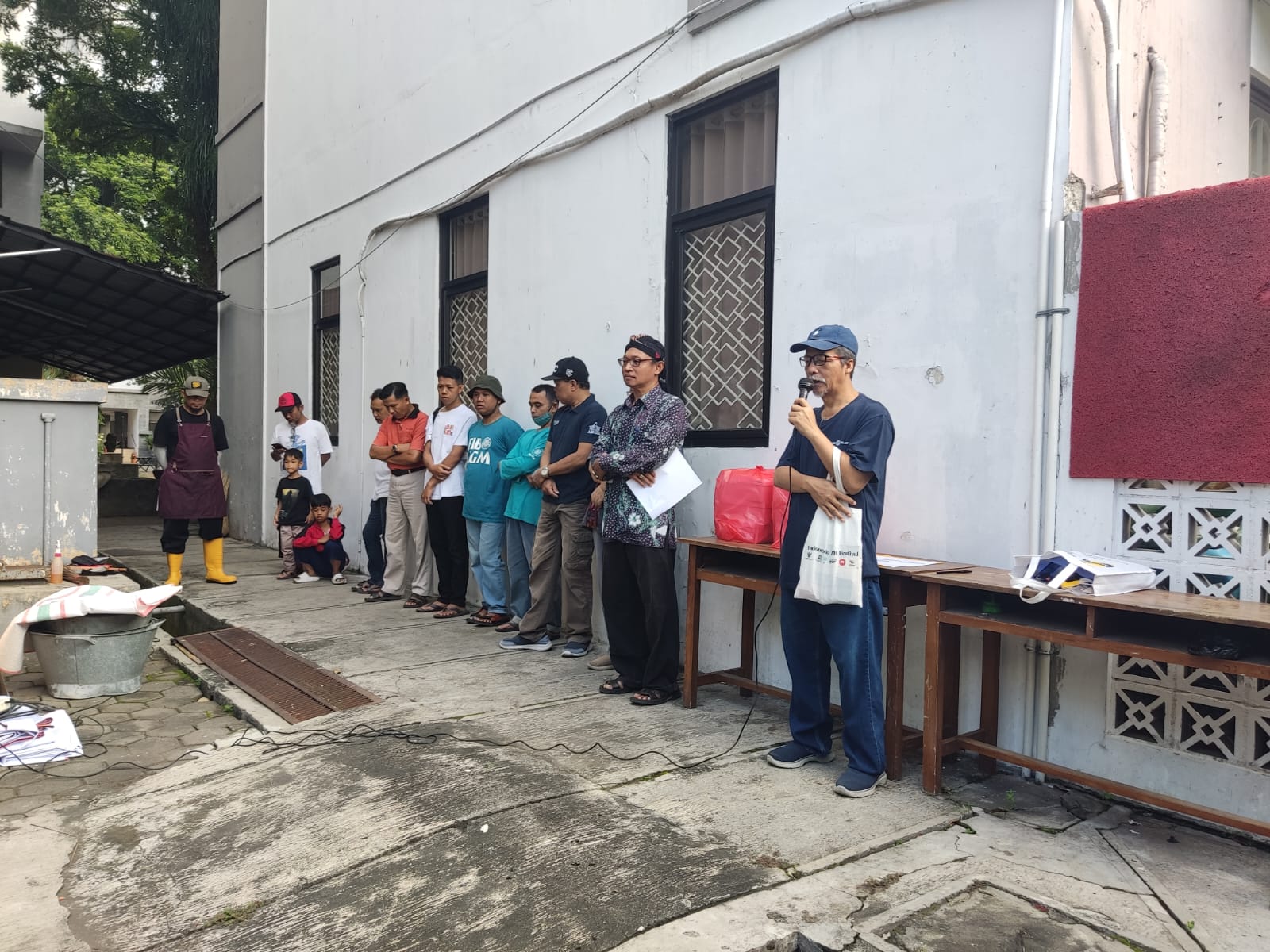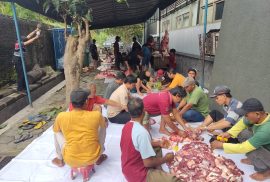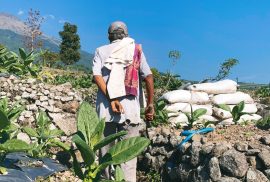Yogyakarta, 8/6/2025 – The Faculty of Cultural Sciences (FIB) at Universitas Gadjah Mada (UGM) held a sacrificial animal slaughter event on 8 June 2025 as part of its commitment to the Sustainable Development Goals (SDGs), particularly those related to ending poverty and hunger. The event began at 08:00 AM and continued until all activities were completed.
This year, the faculty sacrificed three healthy and well-sized cows, ensuring that the meat could benefit as many underprivileged families as possible. Beyond fulfilling a religious obligation, the sacrificial event also served as a social initiative aimed at alleviating hunger and supporting vulnerable communities.
The event opened with a prayer led by Mr. Jawat, which reminded participants of the spiritual importance of sharing and caring for others. The atmosphere encouraged reflection on the values of togetherness and compassion that lie at the heart of the sacrificial tradition.
The Dean of FIB UGM delivered a speech affirming the faculty’s role in upholding social responsibility. The event was viewed not only as a religious tradition but also as a meaningful contribution to addressing social issues such as poverty and food security, in alignment with the SDGs.
Following the Dean’s remarks, Mr. Musadad, Chairman of the Takmir, expressed his appreciation for the active participation of faculty members and students. He emphasized the importance of collective efforts and the spirit of solidarity in supporting those in need.

The meat from the sacrificed animals will be distributed to various local communities with the goal of reaching as many families as possible and ensuring their access to nutritious food. This initiative directly supports the SDGs’ mission to end hunger and promote food security for all.
Through the implementation of this sacrificial event, the Faculty of Cultural Sciences demonstrates its ongoing commitment to social responsibility and sets an example for other institutions in fostering compassion and driving positive change in society.
[Humas FIB, Alma Syahwalani]



